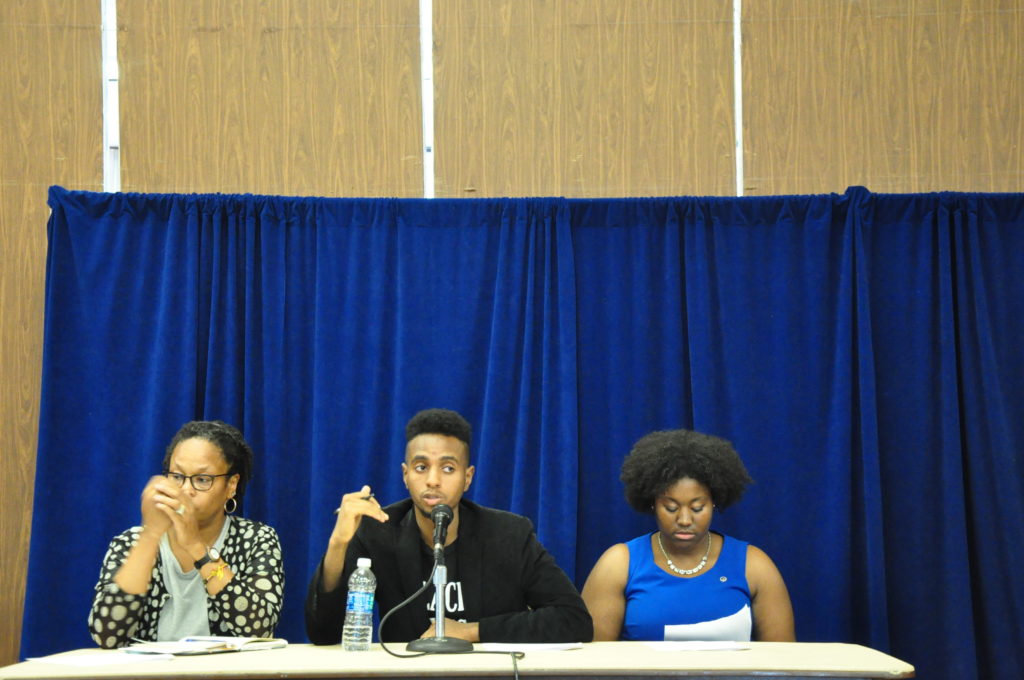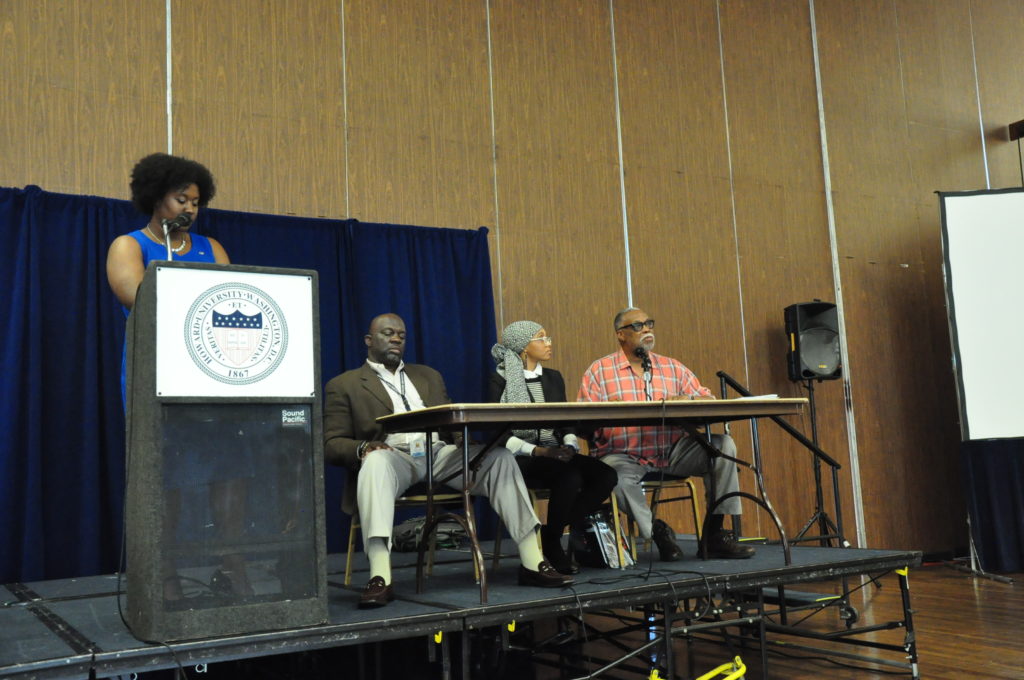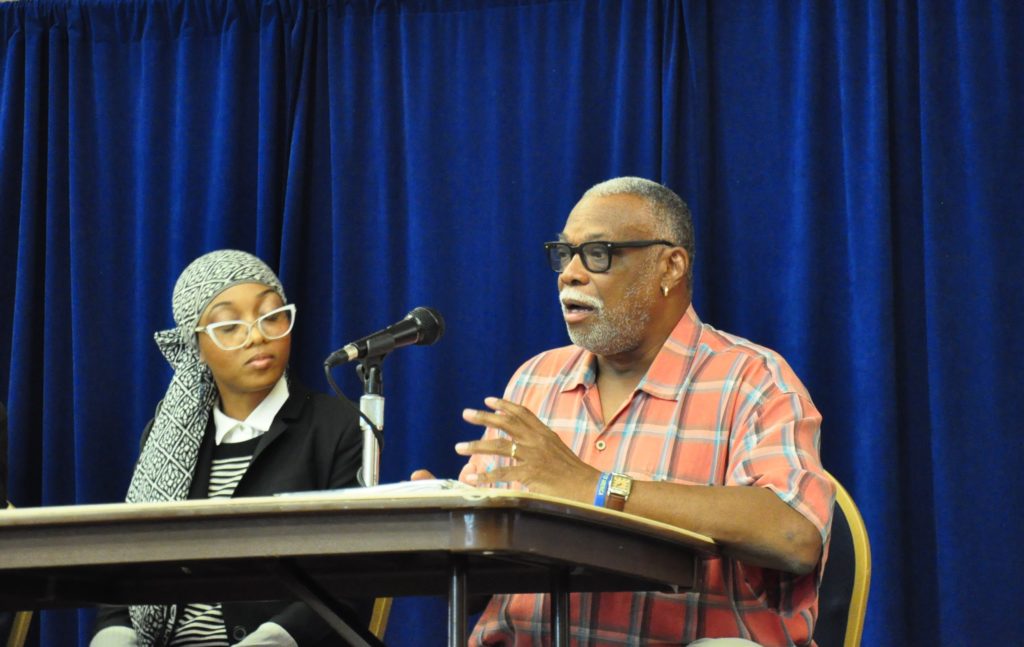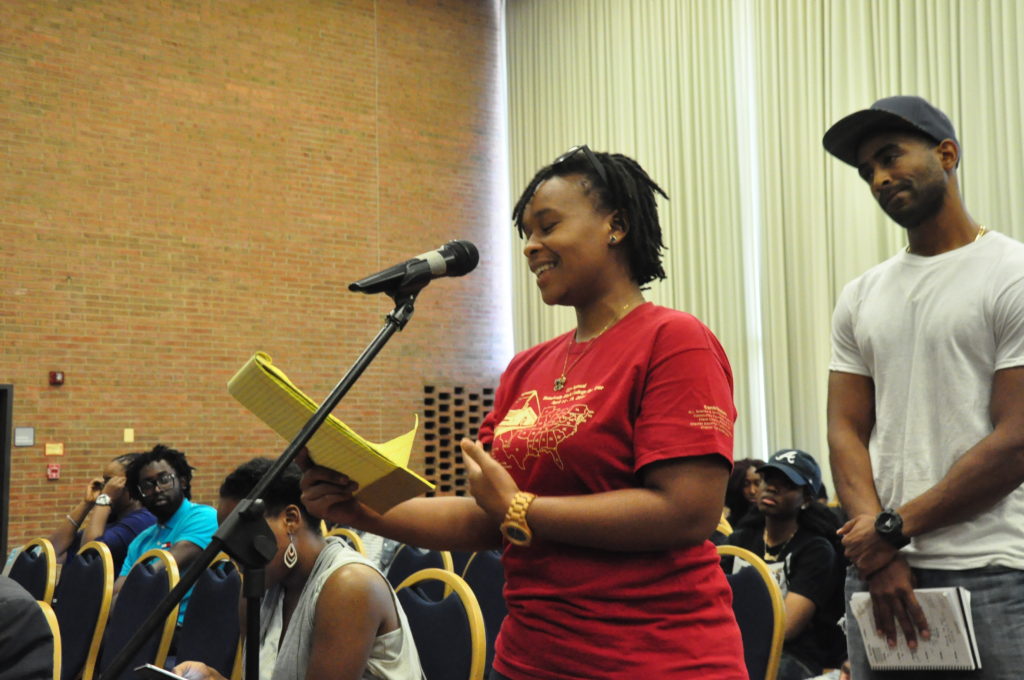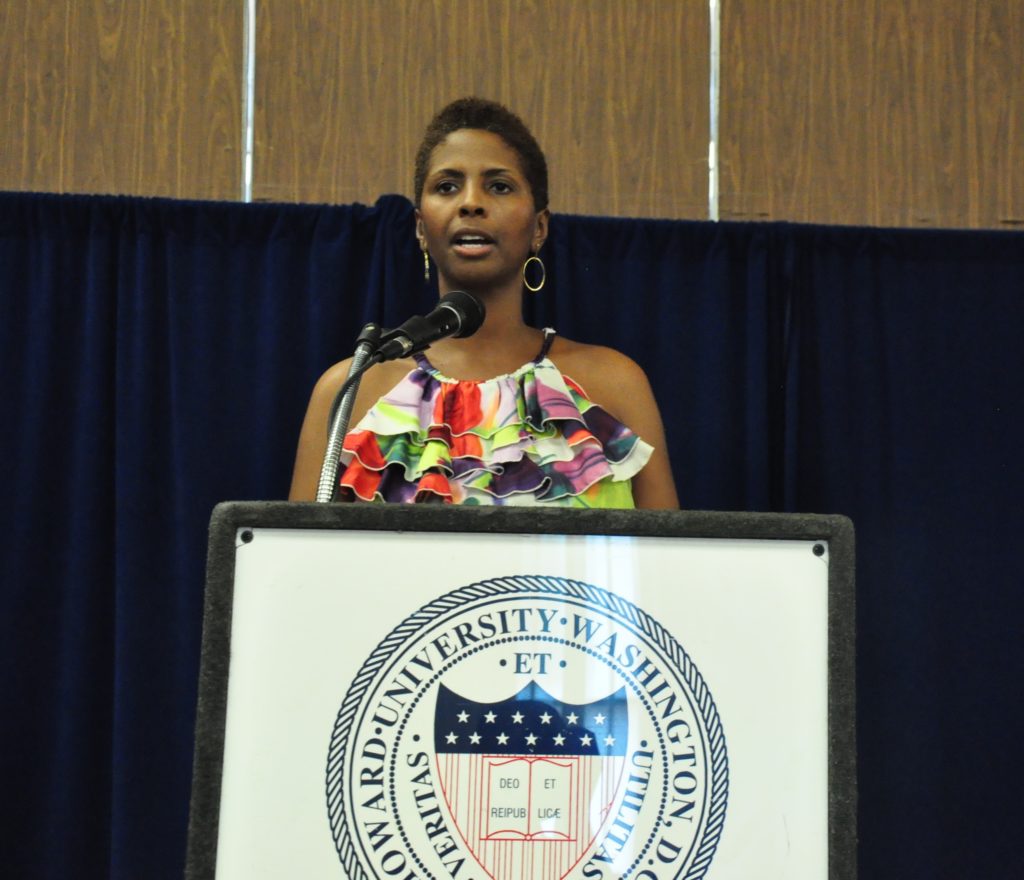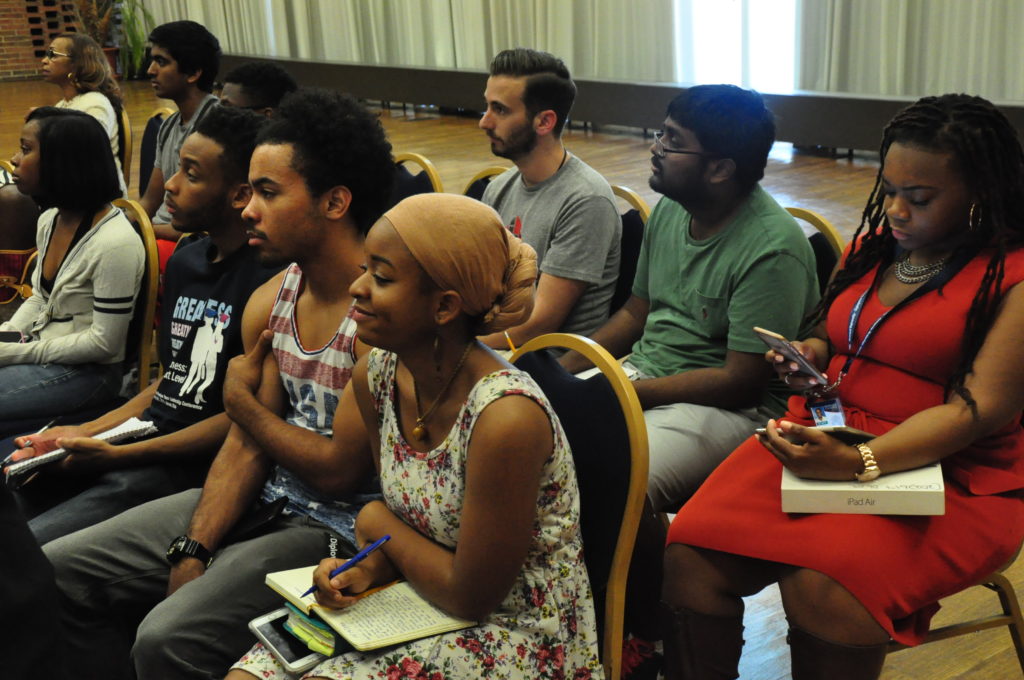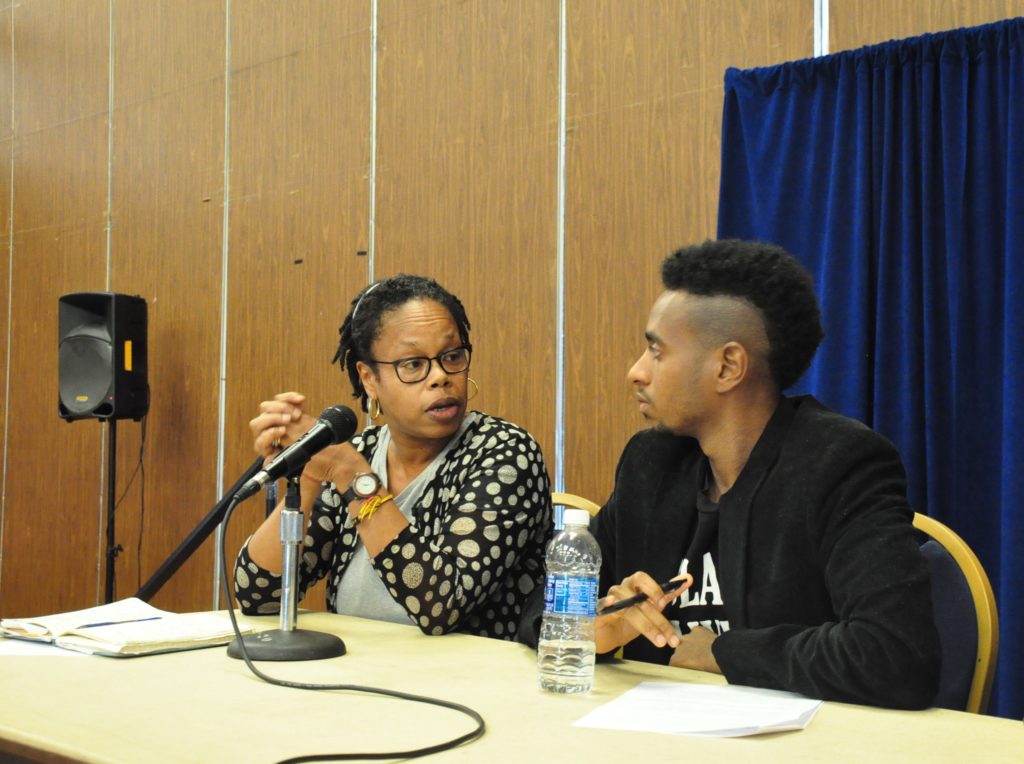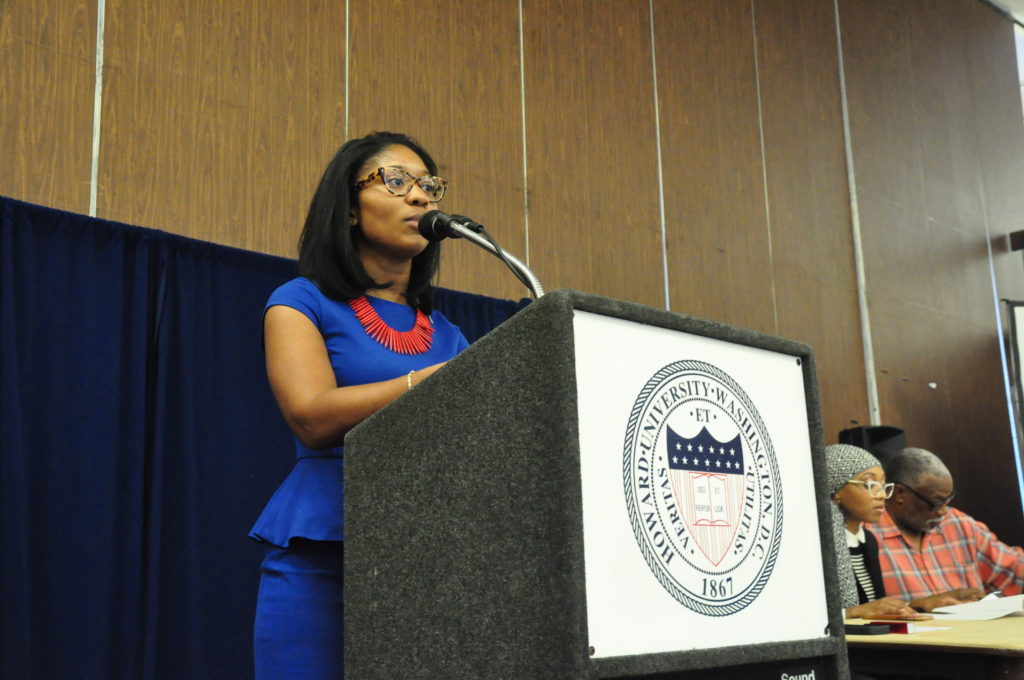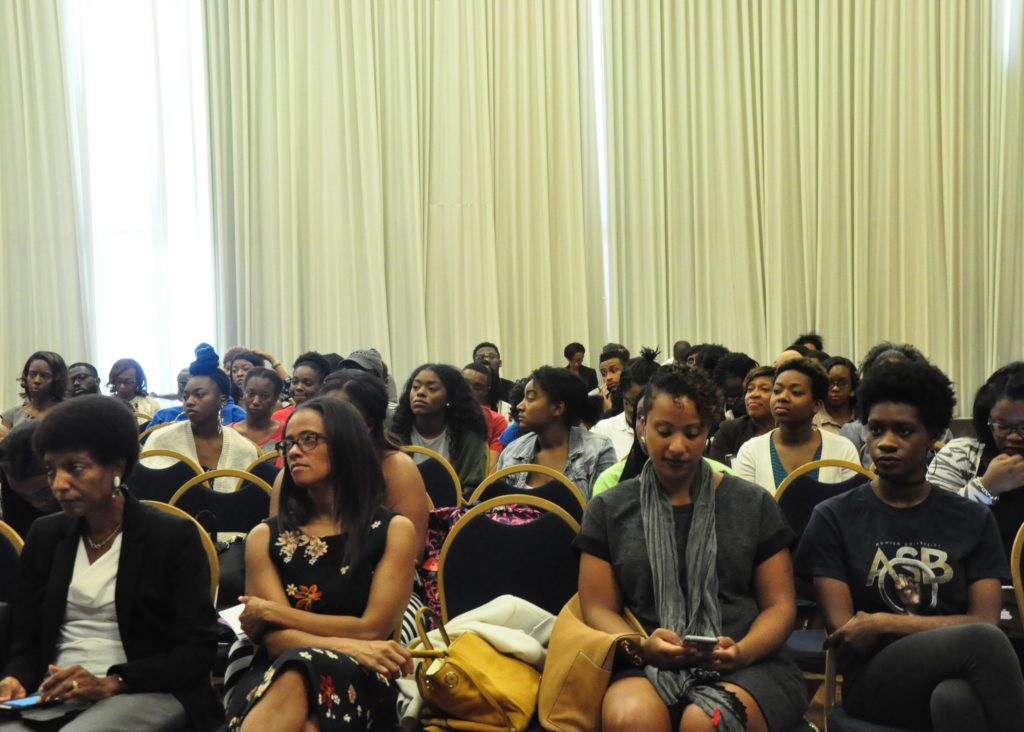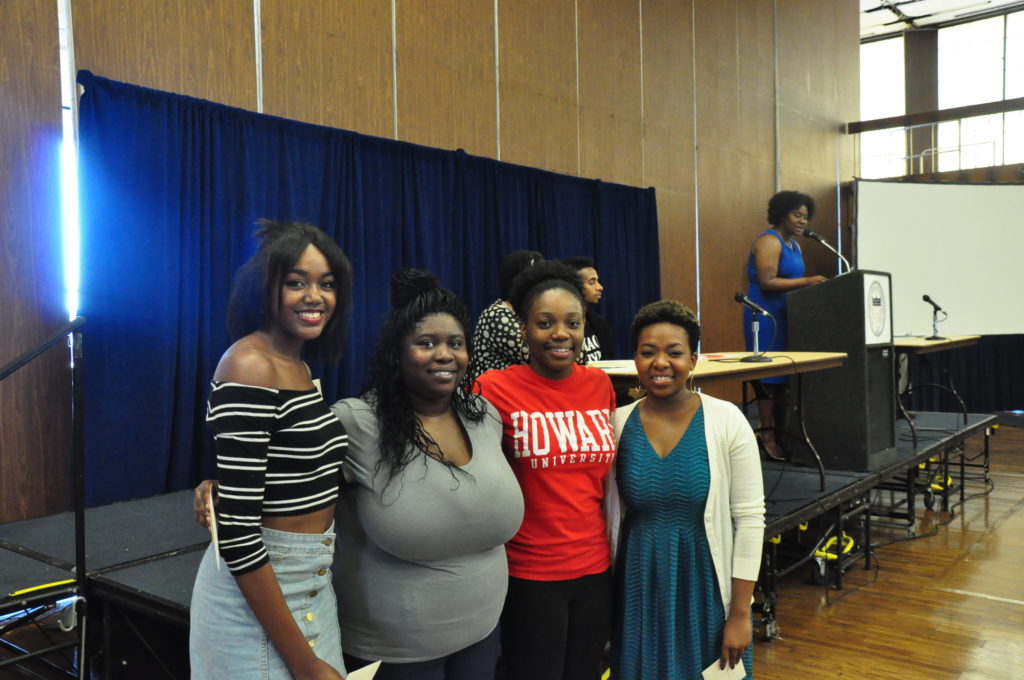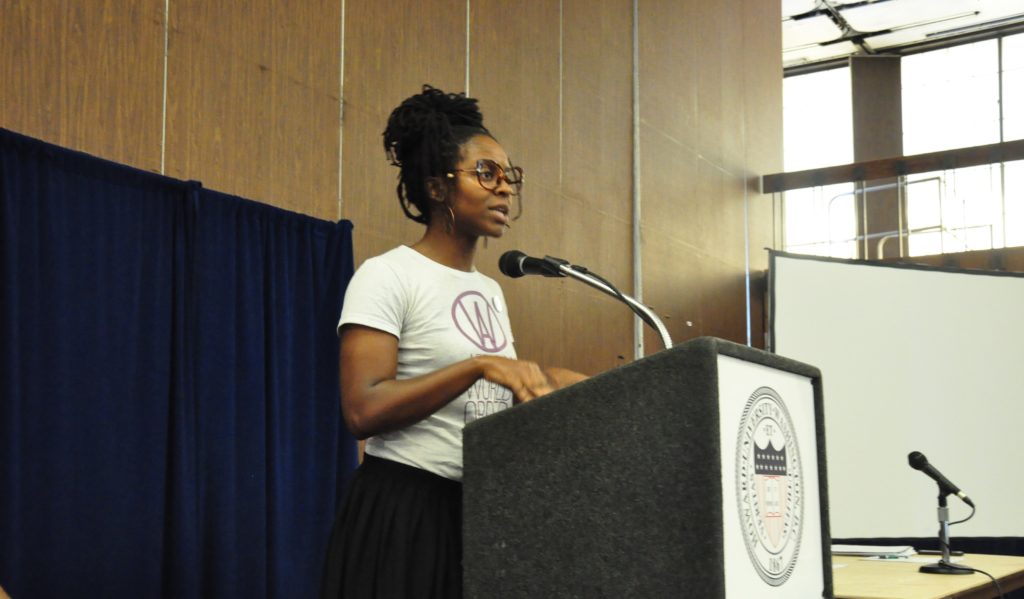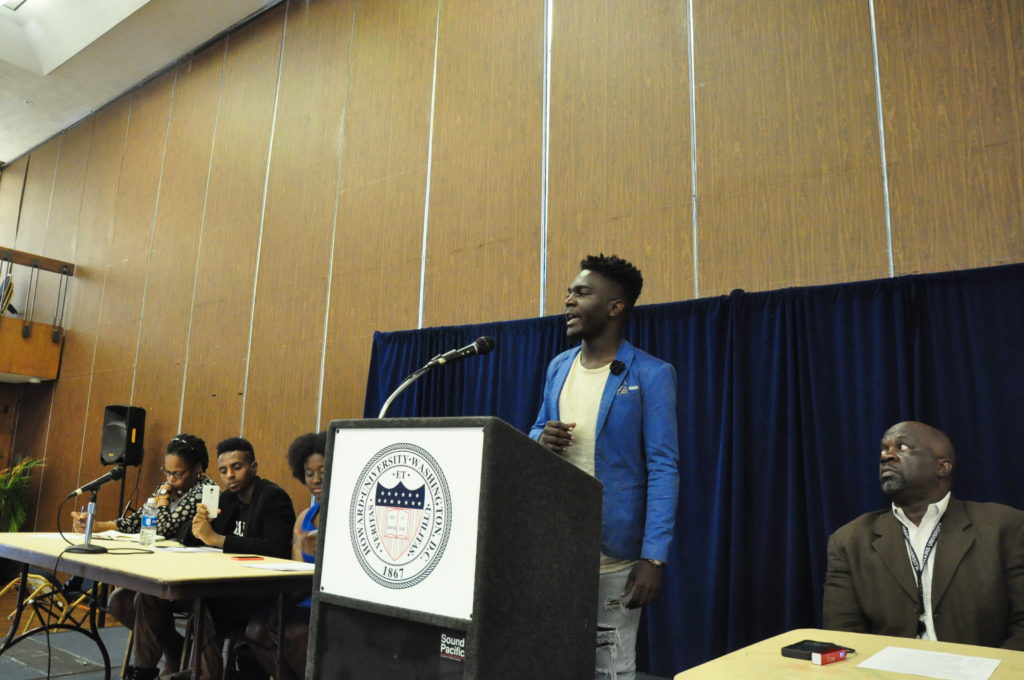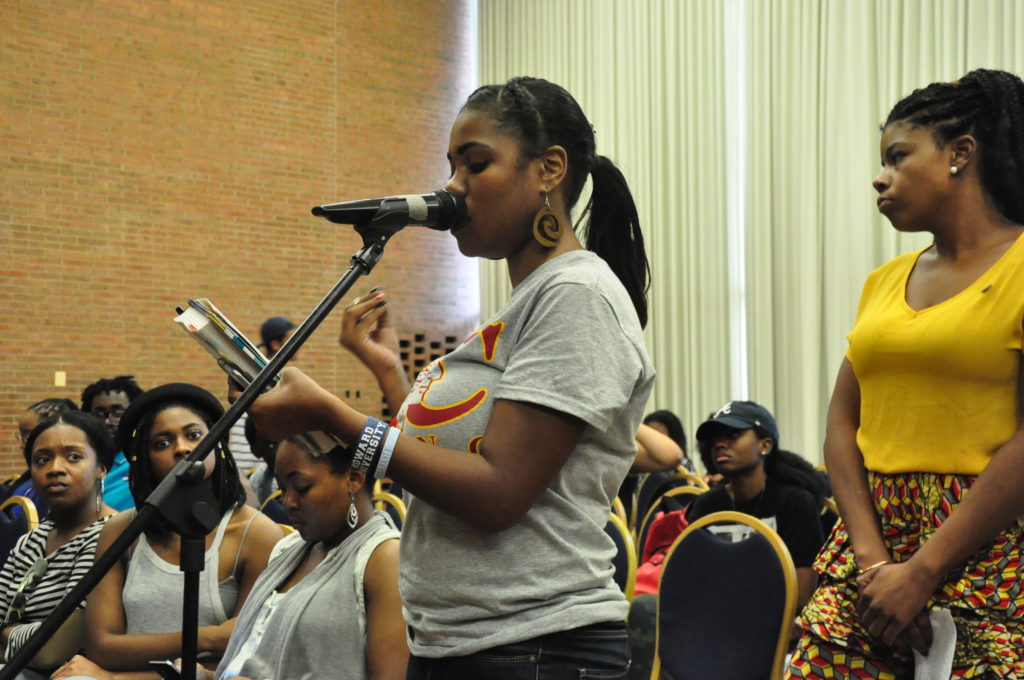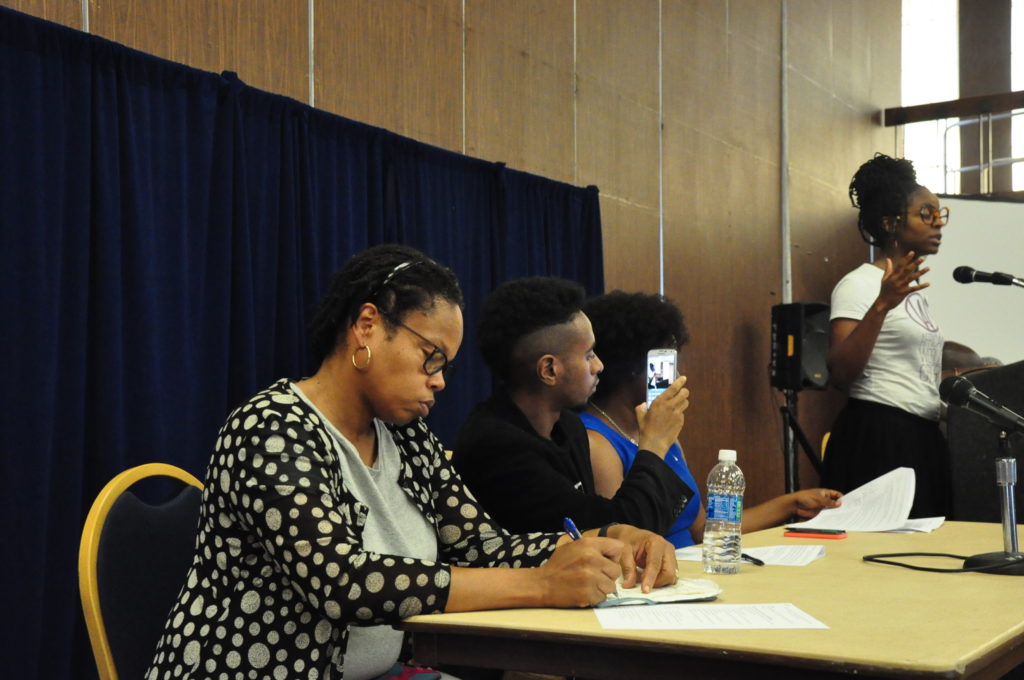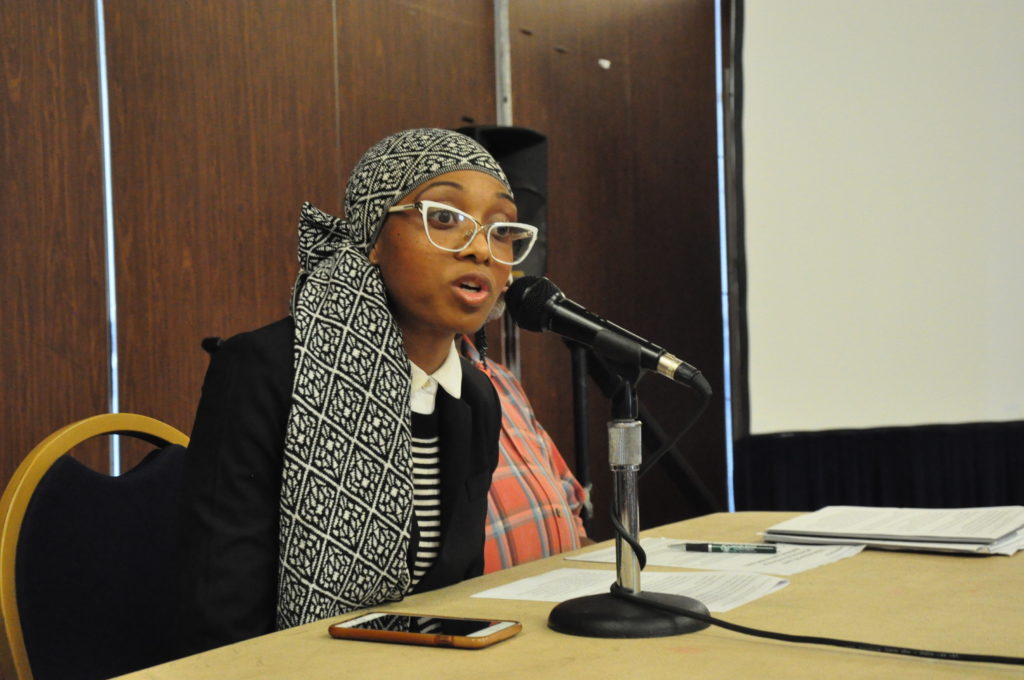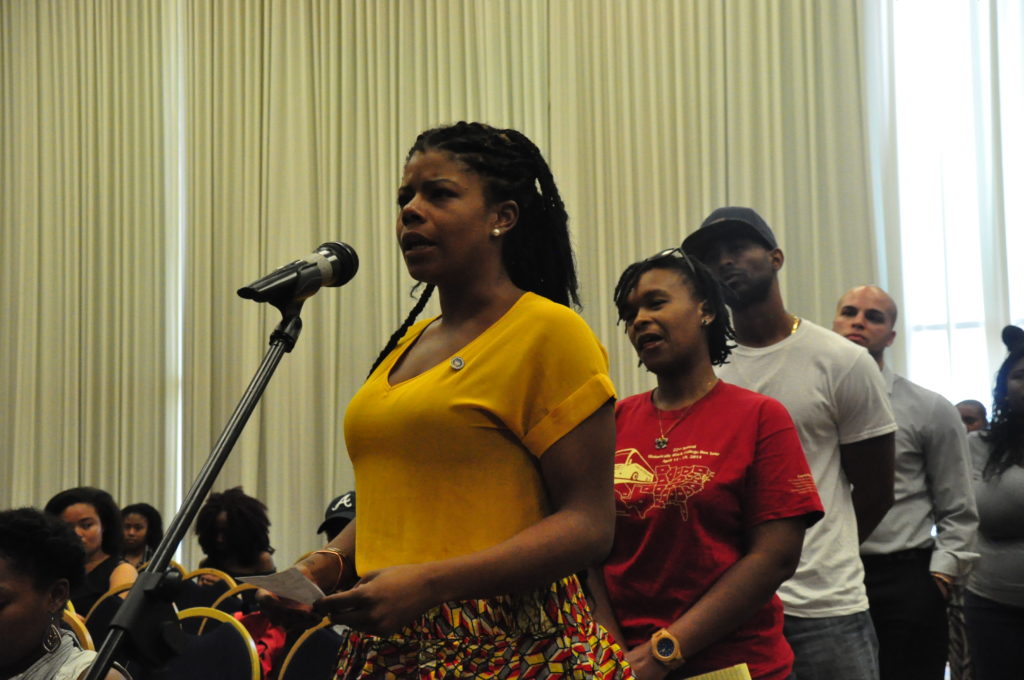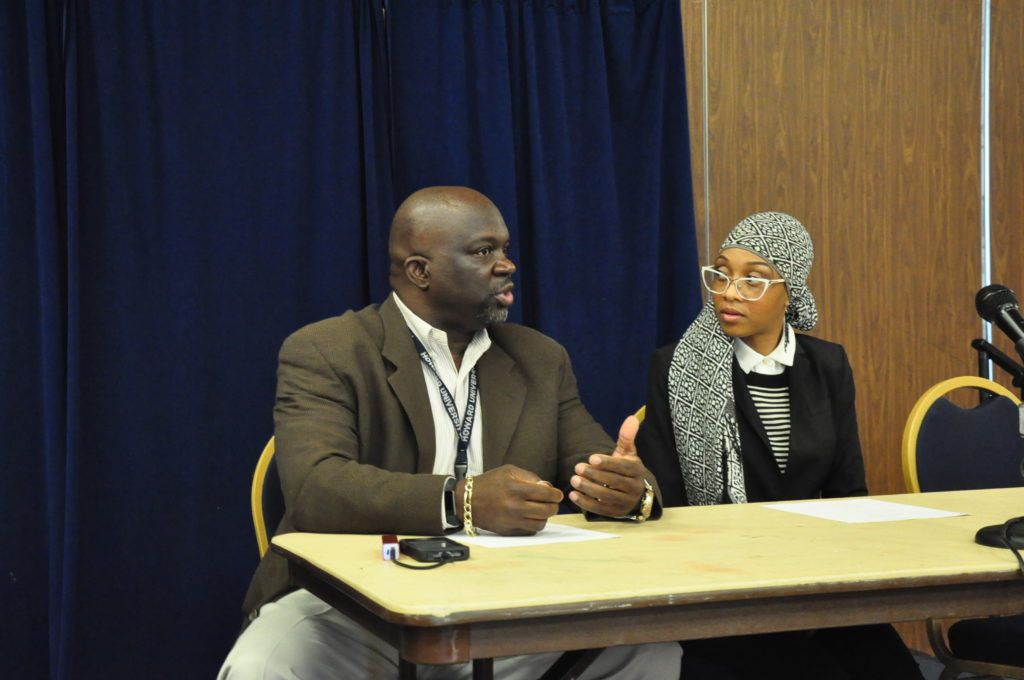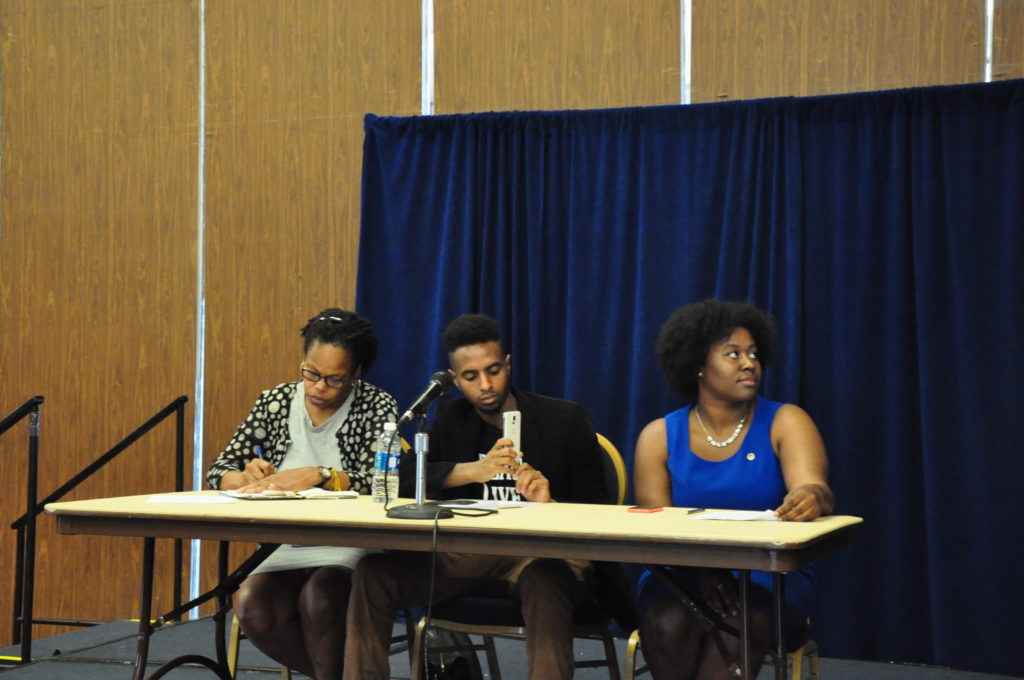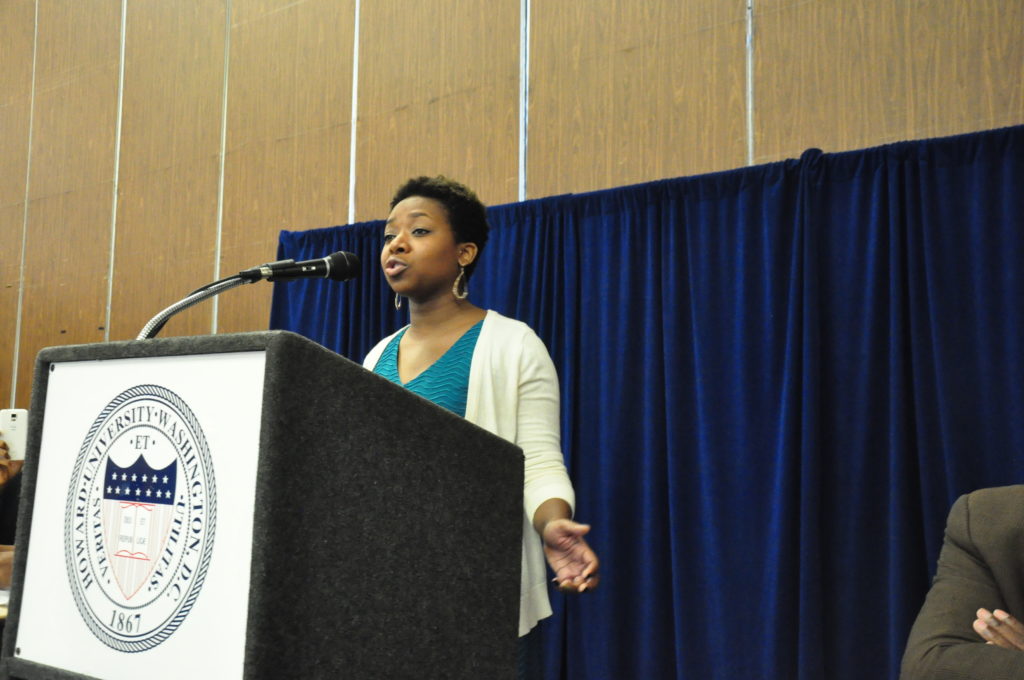The Hilltop Newspaper will be reporting a series on #ExperienceBluePrint before, during and after.
By David DePriest, Contributing News Writer
Posted 9:50 PM EST, Fri., Oct. 28, 2016
During this year’s Homecoming, a panel discussion entitled “Committed to Breathing” Town Hall was hosted in Howard University’s Blackburn Center Ballroom on Wednesday, October 19.
The event was organized as part of a broader push by the administration and the Howard University Homecoming Steering Committee to center Homecoming around student action on key issues regarding the nature of anti-Black violence and the roles that students can play in pushing for reform.
The town hall was student-led as Alexis McKenney, junior political science major, moderated the discussion. The panel, consisted of five of Howard University’s most prominent voices on criminal justice reform, featured Dr. Lisa Crooms-Robinson, professor of law and associate dean for academic affairs at Howard University, Dr. Bahiyyah Muhammad, associate professor of criminology at Howard University, student activist and senior political science major Kamau Waset, Howard Chief of Police Brian K. Jordan and retired Washington D.C. Metropolitan Police Department Ronald E. Hampton.
Students who attended questioned policing’s historical links to slavery, property protection and implementing transgender and queer identifying people into policing.
“I think a lot of people see police brutality as a modern issue, when it has been a historical issue,” said Ayana Evans, a junior transfer economics major. “The frame of the conversation could have used a little bit more contextual information for people who do not understand how this has been an ongoing thing.”
In addition, discussion included how many people failed to understand the foundations of police brutality in America, and its historical connections to many Black people today.
“It is important for us to understand why people are fearful of us,” said Waset. “You cannot detach concrete policies from the narratives that we are trying to resolve.
“The policies are both the result and the cause of the things we are seeing in terms of anti-Black attitudes. Those two things cannot be divorced,” he said.
This brought on a passionate response from Jordan, who argued that forums like these often focus on all that is bad with policing, as opposed to the instances where a pronounced police presence is welcomed, like in Chicago.
“What happens is, when we take a 90-minute conversation, we spend at least 85 minutes redescribing the problem every time,” said Jordan. “Talk about the history of policing, talk about the history of slavery, or Black folks.”
In order to start shifting the perspectives that many seem to hold about the police department, many in the audience felt that it’s important to understand the ways for people to take action against the issues that many deal with in terms of policing.
“How can we change this? We get involved in the process, stand up and tell them that ‘I’m not going to accept this,’” said Hampton, who spoke against the “power, privilege, and entitlement” segment.
Amongst the discussion, other topics such as the inclusion of women and queer people into policing discussions that generally prioritize black men were brought into the conversation.
- (Photo Credit: Leaynet Sahilu/Staff Photographer, The Hilltop)
- (Photo Credit: Leaynet Sahilu/Staff Photographer, The Hilltop)
- (Photo Credit: Leaynet Sahilu/Staff Photographer, The Hilltop)
- (Photo Credit: Leaynet Sahilu/Staff Photographer, The Hilltop)
- (Photo Credit: Leaynet Sahilu/Staff Photographer, The Hilltop)
- (Photo Credit: Leaynet Sahilu/Staff Photographer, The Hilltop)
- (Photo Credit: Leaynet Sahilu/Staff Photographer, The Hilltop)
- (Photo Credit: Leaynet Sahilu/Staff Photographer, The Hilltop)
- (Photo Credit: Leaynet Sahilu/Staff Photographer, The Hilltop)
- (Photo Credit: Leaynet Sahilu/Staff Photographer, The Hilltop)
- (Photo Credit: Leaynet Sahilu/Staff Photographer, The Hilltop)
- (Photo Credit: Leaynet Sahilu/Staff Photographer, The Hilltop)
- (Photo Credit: Leaynet Sahilu/Staff Photographer, The Hilltop)
- (Photo Credit: Leaynet Sahilu/Staff Photographer, The Hilltop)
- (Photo Credit: Leaynet Sahilu/Staff Photographer, The Hilltop)
- (Photo Credit: Leaynet Sahilu/Staff Photographer, The Hilltop)
- (Photo Credit: Leaynet Sahilu/Staff Photographer, The Hilltop)
- (Photo Credit: Leaynet Sahilu/Staff Photographer, The Hilltop)
- (Photo Credit: Leaynet Sahilu/Staff Photographer, The Hilltop)
With these topics brought up, the tone of the discussion from them on felt short and less incisive discussions took place, in part because most of the men on the panel either refused to engage or did so sparingly. However, this also brought on the event’s most noteworthy statement made by Muhammad.
“Love yourself,” said Muhammad. “I do not think anyone’s apology, regardless of where it comes from, is going to be able to give you that strength and that conviction to live life in this skin.”
“I think that once you love yourself, you love the skin that you are in, you’ll be fearless,” she said.
The panel discussion was full of robust opinions and emotions about the state of Black culture being terrorized by police force, but the premise of the discussion was to use love to overcome the challenges that our community faces.


